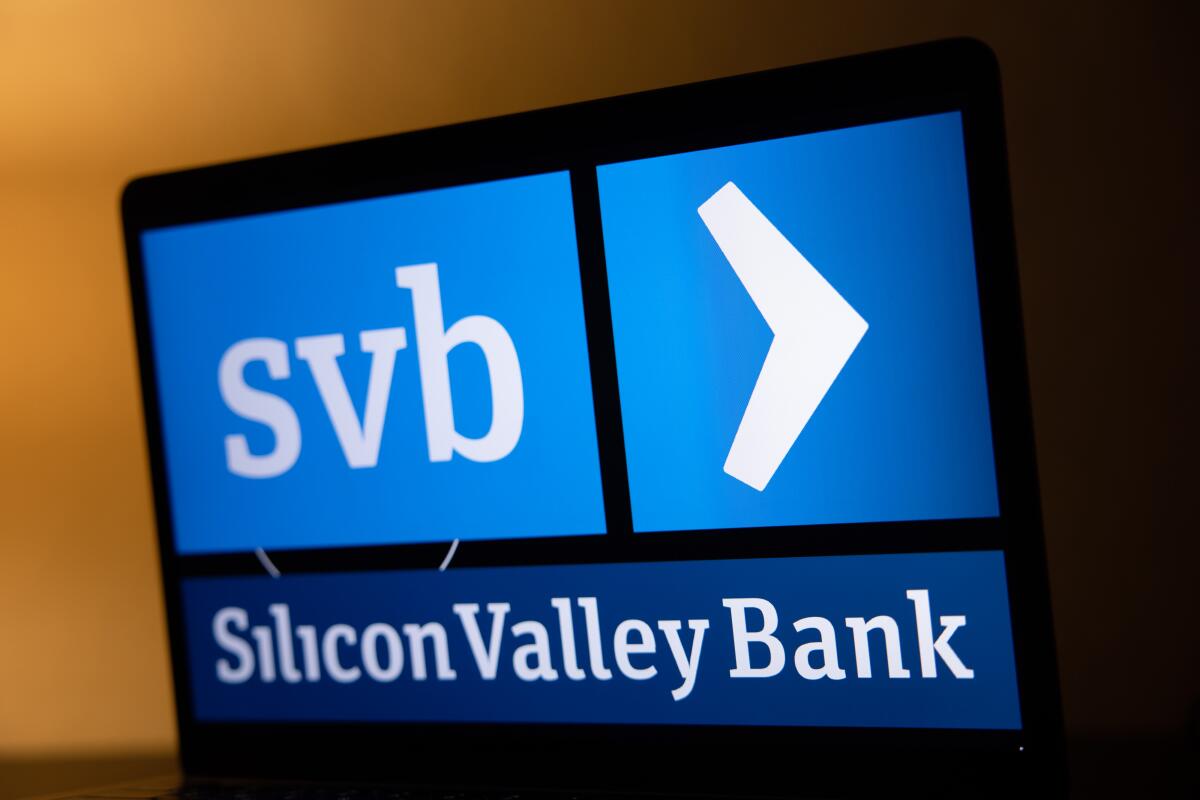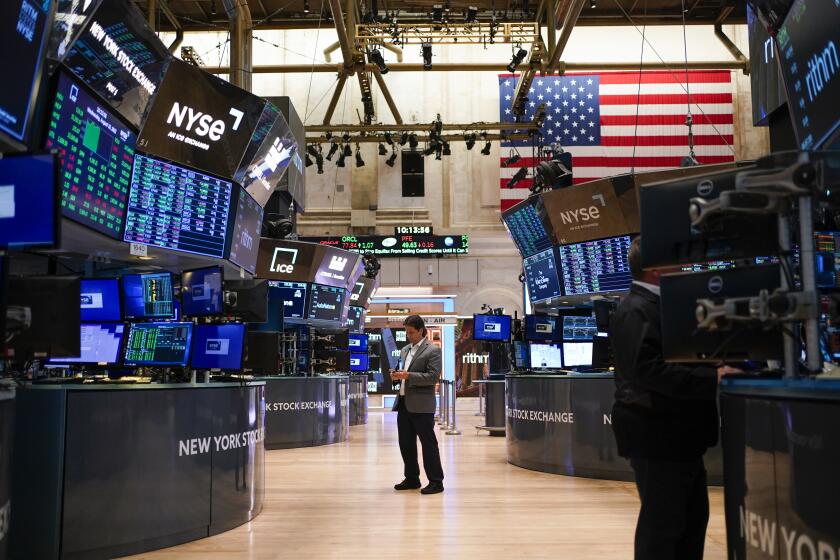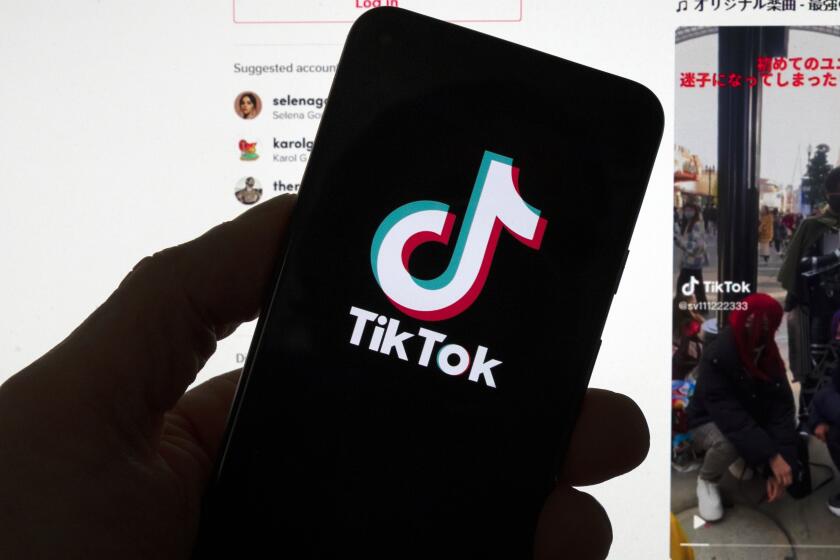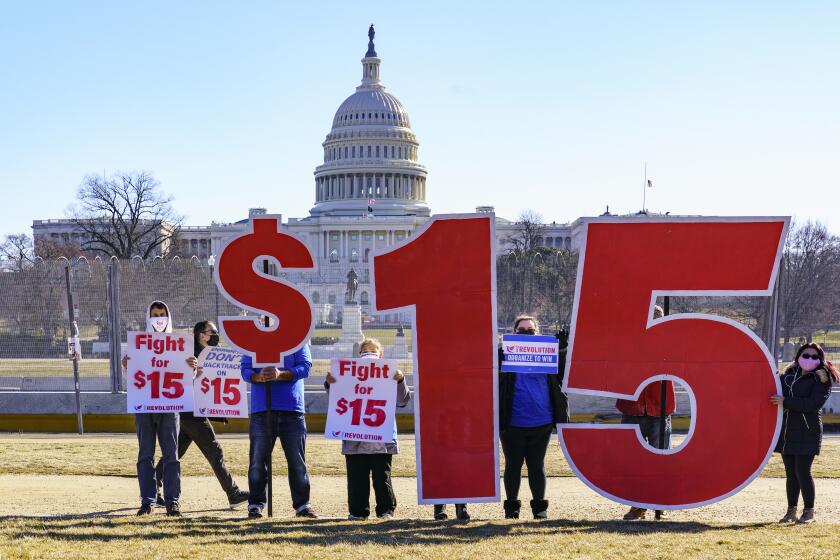Opinion: How Big Tech’s predatory culture fuels failures like Silicon Valley Bank

After 20 years of what appeared to be unstoppable growth, America’s tech industry has spent the past year underperforming the rest of the economy. Product failures in new industries like virtual reality and cryptocurrency, layoffs across the board, lower stock prices, and the failure of Silicon Valley Bank create a teachable moment to talk about the tech industry’s culture and direction.
Beginning in the mid-’50s, the tech industry embarked on a 50-year run of invention, entrepreneurship, empowerment and transformation. It delivered new industries and massive productivity gains to the rest of the economy. Americans grew accustomed to new technology, embracing each new generation, confident that it would make their lives better.
To an increasing degree over the past dozen years, the tech industry exploited the trust of consumers and policymakers to change the game. Rather than empowering users, many new technologies have exploited human weakness. They have used data and application design to manipulate the choices and sometimes the behavior of users, undermining their autonomy. Rather than creating new industries, tech has exploited data, low-cost capital and lack of regulation to extract value from consumers and existing industries. Tech has become a zero-sum industry.
We can’t expect the industry to transform itself in 2023. That push must come from government and voters.
Despite press coverage of the harms arising from internet platforms — including political and social polarization — of the questionable business practices of cryptocurrency, and the flaws of artificial-intelligence systems, policymakers have failed to regulate or legislate. Just as important, consumers have chosen to trust even the most untrustworthy of tech companies. We know there is something wrong, but we have not yet insisted on change.
The recent collapse of Silicon Valley Bank illustrates a tech industry culture that prioritizes profit over the public interest time and again. SVB was a community bank. It claimed that half of all startups had accounts there, as well as a huge percentage of venture capitalists and executives. For decades, SVB embraced Silicon Valley culture, providing unique services to its community. And until quite recently, Silicon Valley was loyal to its bank.
Explosive growth in the startup world after the 2008 financial crisis translated into massive deposit growth that stopped a year ago when the Federal Reserve announced its plan to raise interest rates to stem inflation.
Four factors contributed to the collapse of SVB. Had the Fed not raised interest rates by 4.75% over the past year, SVB would not have failed. Had Congress not passed a law in 2018 that loosened the regulation of banks such as SVB, SVB would not have failed. Had SVB employed good risk management, it would not have failed. Had bank regulators done their job during a period of rapidly rising interest rates, SVB would not have failed. But even with all four failures, SVB should not have failed.
SVB failed because the community it had supported from its inception abandoned it at a critical moment. A group of venture capital firms that included Peter Thiel’s Founders Fund raised an alarm about SVB and encouraged their portfolio companies to withdraw funds immediately — $24 billion went out the door in little more than a day.
Some in the tech industry would have you believe the collapse of SVB — as with other failures of tech — is unconnected to the culture and business practices of Silicon Valley. That is nonsense, and there are lessons to be gleaned.
One lesson is that loosening regulations on big sectors — such as the rollback of Dodd-Frank financial reforms in 2018 — rarely ends well. One might reasonably conclude that government regulations, such as those around vaccines, serve an essential role in consumer safety that becomes less obvious the longer they have been effective.
Despite Biden’s recent threat to the Chinese-owned app, a national ban is unlikely, and a forced sale would get messy.
The vast majority of the major players in tech now were not in operation when the deregulation boom began in 1981, but no industry has exploited laissez-faire government policies more effectively than tech. Industry leaders have consistently shifted the burden of harm from their products from themselves to those touched by their products.
Another lesson is that technology progress is not inevitable. The historian Melvin Kranzberg once noted that “technology is neither good nor bad, nor is it neutral.” Technology is the work of human beings and reflects their priorities, incentives and values. If we want tech to be a force for good, we need to ensure that the priorities, incentives and values of the people creating it are consistent with the national interest. We have not done that for at least 20 years.
A third lesson is higher interest rates and increased geopolitical tension may not support the strategies embraced by startups over the past decade. This may be a blessing in disguise.
The industry will always argue that more regulation would slow innovation. The counterargument is that much of the innovation of the past dozen years has caused significant social harm.
Consider all the tech startups since the 2008 financial crisis and ask yourself how we should calculate the harm to society. Some of the most prominent tech segments have done huge damage to consumers, including crypto, AI, self-driving cars, facial recognition, deep fakes and social platforms able to violate your privacy and track your every move. Most startups have done something good, but far too many use the good as bait to enable business practices that lead to harm. They do it because of misaligned priorities, incentives and values.
This brings us back to Silicon Valley Bank. The people whose calls to withdraw funds triggered the bank run are successful, wealthy and careless. If leaders in Silicon Valley are unwilling to support SVB, one of their own and a uniquely valuable partner in their ecosystem, it is safe to assume their business goals would not consider, much less act for, the greater good.
Why would we entrust leadership of an industry central to our economy to people who have no interest in the public interest? The Silicon Valley Bank story also suggests they don’t understand banking, a system that plays a central role in their success. What else don’t they understand?
The solution to this damaged culture is regulation in three areas: public safety, individual privacy and choice, and competition. Congress has a long history of legislating in all three areas. Engineers do their best work when faced with constraints — and it is time to give them some.
Roger McNamee is a co-founder of Elevation Partners and author of “Zucked: Waking Up to the Facebook Catastrophe.”
More to Read
A cure for the common opinion
Get thought-provoking perspectives with our weekly newsletter.
You may occasionally receive promotional content from the Los Angeles Times.












